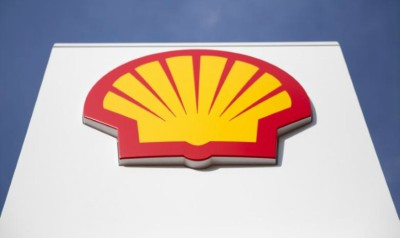Shell close to clinching Hong Kong's first LNG import deal
SINGAPORE (Reuters) - Royal Dutch Shell is close to bagging a deal to supply Hong Kong with liquefied natural gas (LNG), beating out major competitors for the right to be the first company to supply LNG to the city.
 |
Shell has edged out companies such as Malaysia’s Petronas [PETR.UL] to supply LNG through a long-term contract to Hong Kong utility CLP Power [CLPHKF.UL], two sources familiar with the matter told Reuters.
Hong Kong is undertaking a massive shift to using more natural gas to fuel its electric power generation from coal, potentially creating a steady and lucrative demand source in the Asian LNG market.
Under the deal, Shell will supply about 1.2 million tonnes per annum (mtpa) of LNG for about 10 years starting after 2020, the sources said, declining to be named as they were not authorized to speak to the media.
However, the supply agreement will be subject to a final investment decision (FID) for an offshore LNG import terminal that will include a floating storage and regasification unit (FSRU), one of the sources said.
It was not immediately clear if the deal was binding or a memorandum of understanding.
CLP and Petronas did not immediately reply to requests for comment. Shell declined to comment on the specific deal and said it “continuously seeks opportunities to grow and improve profitability”.
“This may include talking with third parties from time to time, any conversations are confidential,” a spokeswoman said.
As part of its commitment to the Paris Climate Change Agreement, Hong Kong is aiming to increase the use of natural gas in its total fuel mix for power generation to about 50 percent by 2020 from 22 percent as of 2012.
Hong Kong currently produces power using imported fuel in domestic power plants or from imported natural gas from the mainland. The country’s coal-fired plants will reach the end of their useful life in the next decade.
Hong Kong’s gas demand is expected to grow after 2020 as a result of efforts to meet environmental targets, said Edmund Siau, an LNG analyst with consultancy FGE.
“A mixture of LNG imports and increased pipeline gas imports from China will likely help to meet this demand growth,” he said.
CLP Power is building a new gas-fired generation unit at its Black Point Power station at a cost of HK$5.5 billion ($701.42 million) which will start operations by 2020, according to the company’s 2017 annual report.
It is also planning to develop an offshore import terminal using the FSRU that will be located in the southern waters of Hong Kong, according to the report.
CLP is now undertaking an environmental impact assessment of the Hong Kong Offshore LNG Terminal project, which involves the FSRU, said a spokeswoman from the country’s Environmental Protection Department.
Apart from CLP Power, privately-owned Hong Kong Electric Company is also looking to import LNG, a source familiar with the matter said. Hong Kong Electric did not immediately respond to an email seeking comment.
In 2008, CLP scrapped a $1-billion LNG plant after China signed an agreement with Hong Kong to guarantee a steady supply of energy to the city for a further 20 years.
($1 = 7.8412 Hong Kong dollars)

- RWE strengthens partnerships with ADNOC and Masdar to enhance energy security in Germany and Europe
- TotalEnergies and Mozambique announce the full restart of the $20-B Mozambique LNG project
- Five energy market trends to track in 2026, the year of the glut
- Venture Global wins LNG arbitration case brought by Spain's Repsol
- Trinity Gas Storage reaches FID on Phase II expansion



Comments